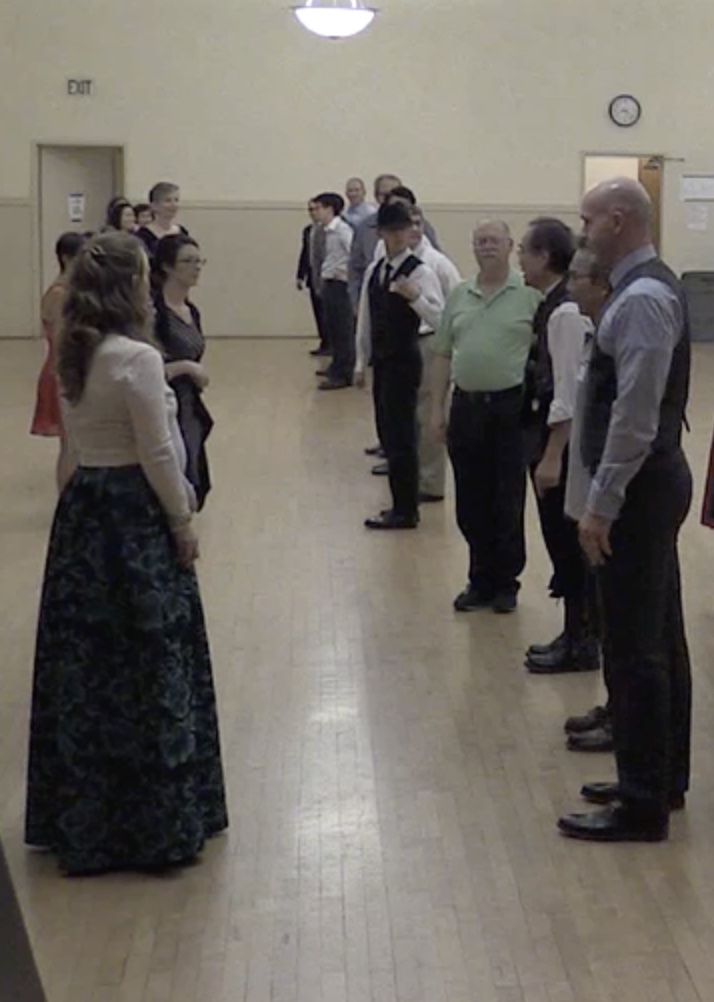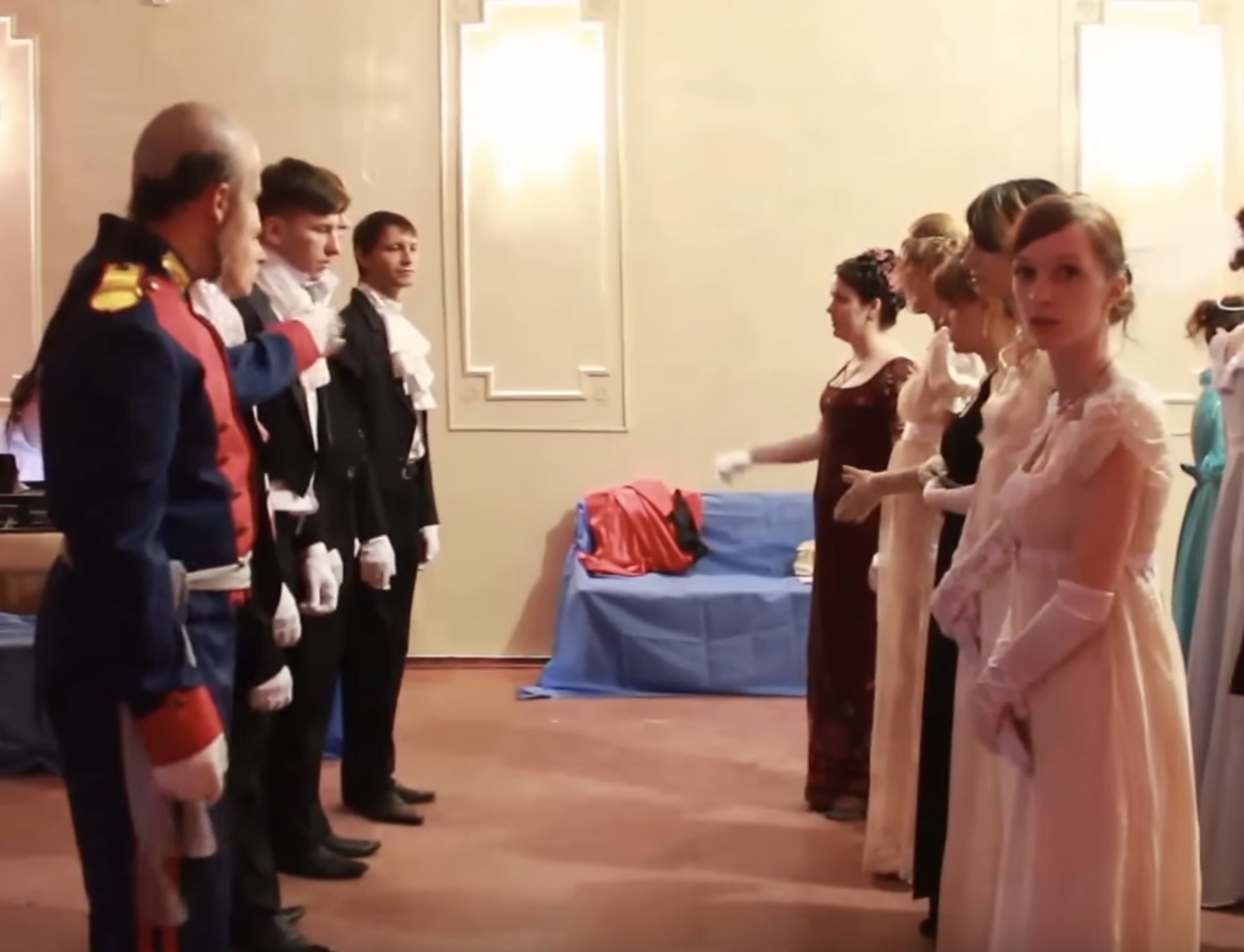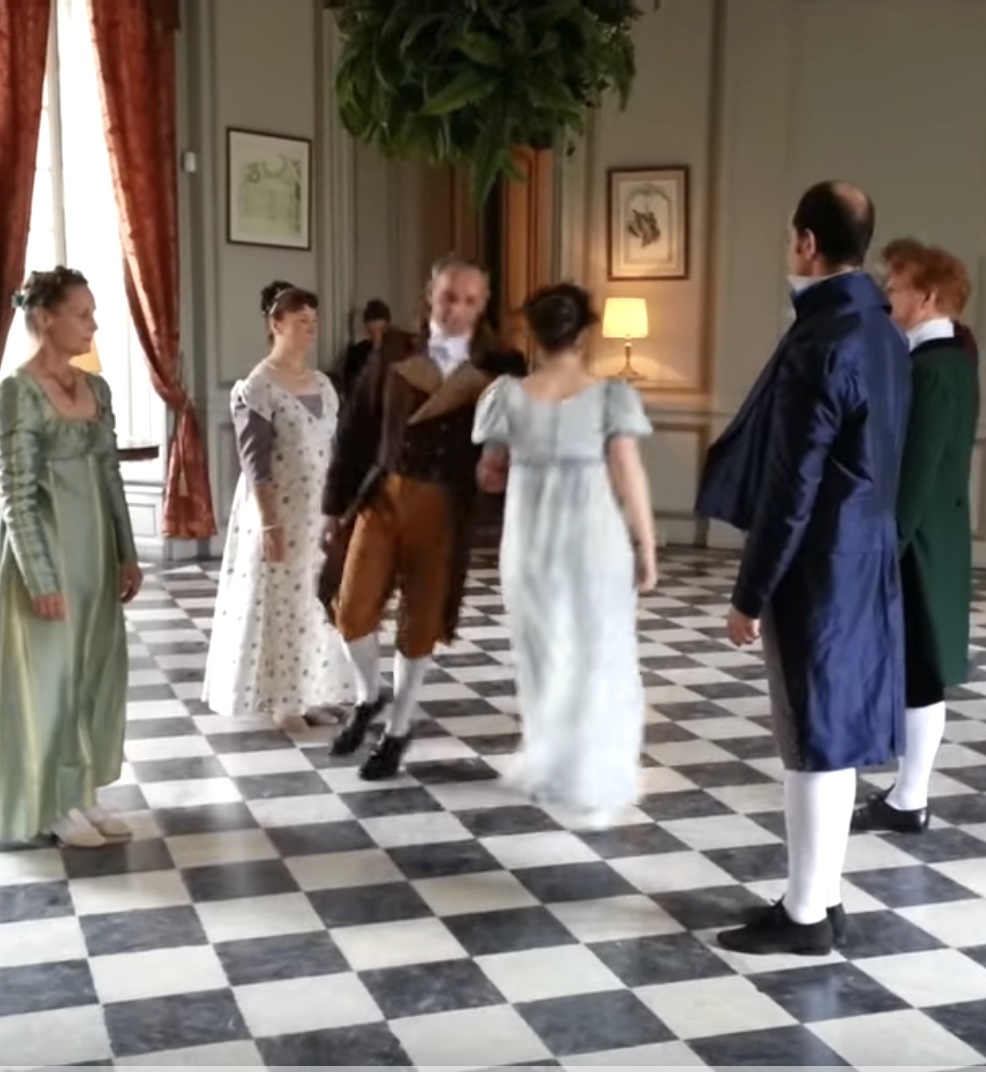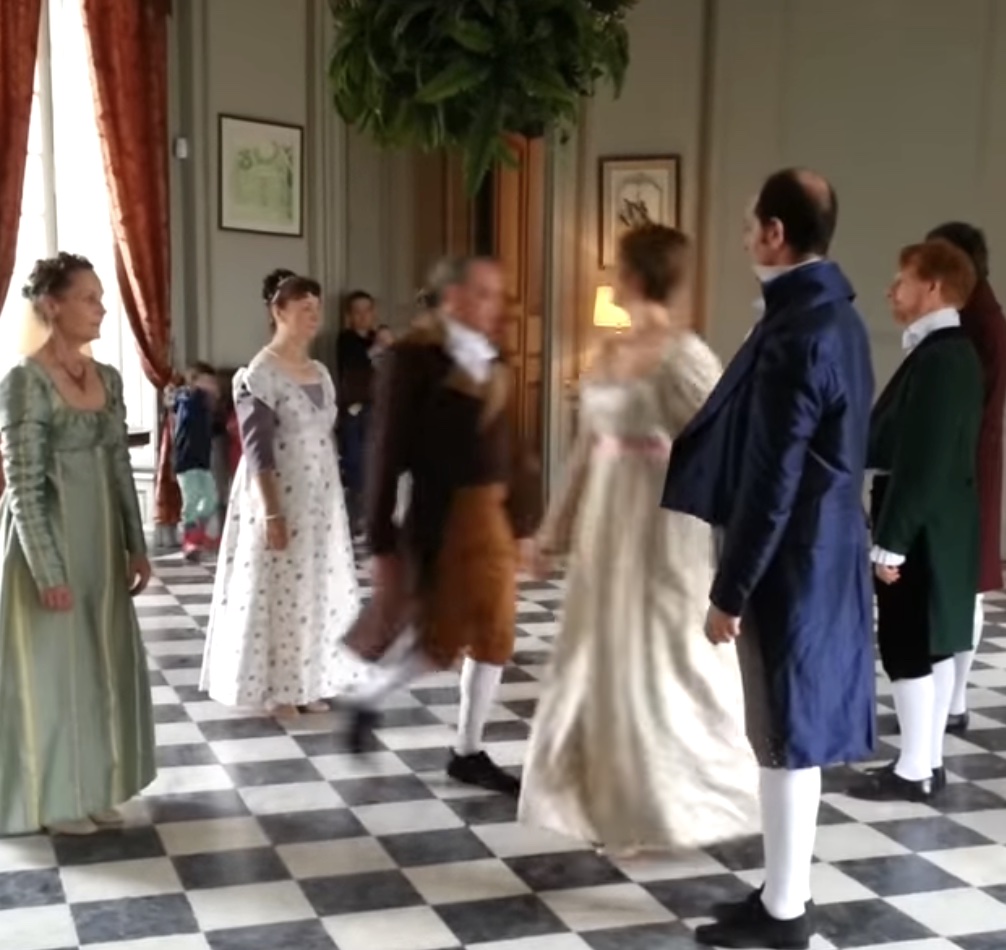Sir Roger de Coverley

Sir Roger De Coverley - Overview
Video of Sir Roger de Coverley
Sir Roger de Coverley, is a very old (1695) but still popular dance. It's even mentioned in Charles Dickens "A Christmas Carol".
This dance is usually taught by the top couple (nearest the DJ). After the DJ announces the song, couples can start a set by placing themselves in the position of top couple and raising their right hands.
After the DJ announces the song, couples can start a set by placing themselves in the position of top couple and raising their right hands.
The DJ usually announces this with "Please take partners and form five or six couple sets to learn and dance Sir Roger de Coverley". If you have more couples than that, the last couples don't get to participate fully.
The DJ may help by pointing out which sets need more people, and encouraging people on the sidelines to join. They may also point out multiple sets in need of additional couples, which can be joined together.

Sir Roger De Coverley - Starting Position
To begin, form a line of 5-6 couples facing each other.
The couple nearest the band/DJ is the "top couple". They will lead the dance, and teach it, if necessary.
The couple furthest from the band/DJ is the "bottom couple". They will dance the main section with the top couple.

Sir Roger De Coverley - Bow
- Both lines take hands and walk toward each other, bow/curtsy, and return to place. This only occurs once, at the start of the dance.

Sir Roger De Coverley - Main Section
This section is danced by the top and bottom couple. Each member of the top couple will dance with their opposite corner from the bottom couple.
It can start with either the top man, or top lady.
- Bow
- Next the top man and bottom lady advance and bow to each other, and retire
- Next the top lady and bottom man advance and bow to each other, and retire
- Right Hands
- Next the top man and bottom lady advance and take right hands, and turn around each other
- Next the top lady and bottom man advance and take right hands, and turn around each other
- Left Hands
- Next the top man and bottom lady advance and take left hands, and turn around each other
- Next the top lady and bottom man advance and take left hands, and turn around each other
- Both Hands
- Next the top man and bottom lady advance and take both hands, and turn around each other
- Next the top lady and bottom man advance and take both hands, and turn around each other
- No Hands
- Next the top man and bottom lady advance, and turn around each other, using no hands
- Next the top lady and bottom man advance, and turn around each other, using no hands

Sir Roger De Coverley - Lace The Boot
Steps
The top man and the top lady walk towards each other and pass right shoulder to right shoulder. Each goes through the other line, and walks around the next person in line, then heads back toward their own line, again passing their partner as they go, this continues until they reach the bottom of the set. They dance/walk to back to the top. The man make a U-turn left and leads the men, in a line, down to the bottom of the set, while the lady does the mirror image on her side.
Once at the bottom, the current top couple meets and raises their hands to form a bridge, all others walk under the bridge, and back to the top of the set. This leaves the former top couple as the new bottom couple, and the former second couple as the top couple for the next run through of the steps.
The top couple's hands need not meet when forming the bridge, as this can make it hard for tall or hatted people to pass through.
The dance now repeats from the main section